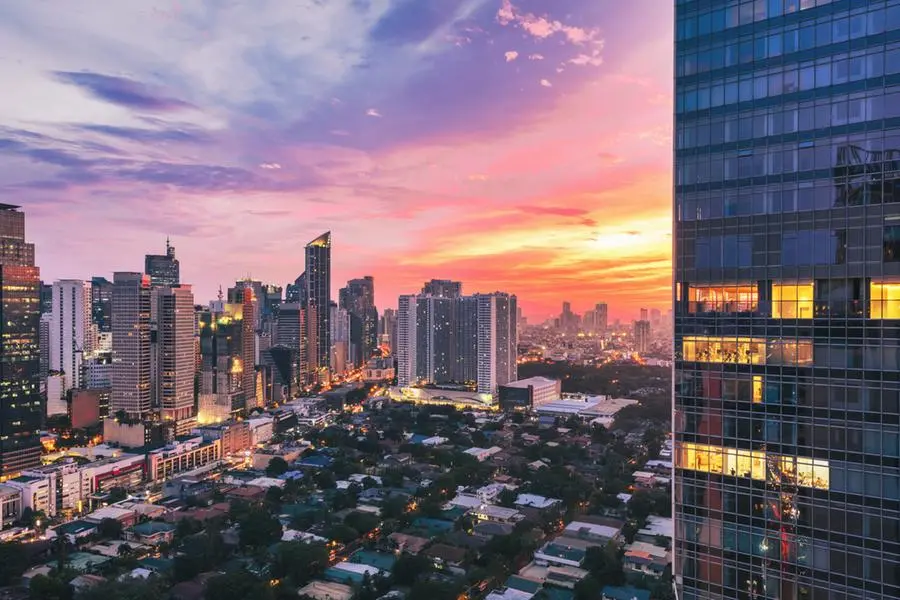PHOTO
Moody's Investors Service affirmed yesterday its Baa2 rating - a notch above minimum investment grade - and stable outlook for the Philippines as growth is expected to remain high due to resilient demand and private investments.
The credit rating agency said that the affirmation was due to several key factors such as the country's reforms to liberalize the economy, fiscal consolidation efforts and robust macroeconomic fundamentals.
'The passage of reforms over the past several years to liberalize the Philippine economy will support medium-term growth potential by supporting a business-friendly environment and attracting foreign investments,' Moody's said.
Data from the Philippine Statistics Authority showed that gross domestic product (GDP) grew by 6.3 percent in the second quarter, faster than the 5.8-percent expansion in the first quarter.
Foreign direct investments (FDI) rose by 15.8 percent to $4 billion in the first five months, compared to $3.5 billion in the same period in 2023.
According to the debt watcher, household consumption will recover in the second half as the impact from El Niño fades while the recent tariff cut on rice to 15 percent from 35 percent will partly ease food prices.
Economic growth will also be driven by the recovery in exports of goods and services, a gradual growth in business process outsourcing (BPO) sector revenues and a rebound in international tourism.
Moody's expects FDI rising in the next two years due to strong investor interest in the energy, manufacturing and information and communications sectors.
On the other hand, Moody's said these growth drivers could be offset by high poverty level and uneven access to education and training opportunities to upskill employees as these could drag down growth if unaddressed.
These challenges are most pressing in the BPO sector amid a greater adoption of artificial intelligence globally and rising competition from other countries.
The rating affirmation also takes into account that fiscal consolidation is on track, although at a slower pace than initially expected.
'We expect the stabilization of the government's debt burden at around 60 percent of GDP on a national government basis, and around 50 percent on a general government basis in the medium-term, which will remain higher than the pre-pandemic level, although in line with peers,' Moody's said.
According to Moody's, progress on revenue and expenditure reforms over the course until 2025 will contribute to the government's fiscal consolidation efforts from 2025 and beyond.
'However, there are downside risks to this, including the failure to pass the proposed fiscal reform bills or higher government spending ahead of the mid-term election in 2025,' it said.
Debt affordability may also weaken over the next two years as elevated interest rates still lead to higher government funding costs. The weaker peso against the dollar may also continue to drive the interest burden higher.
'We expect interest payments will edge-up to around 13 percent of general government revenue in 2024 to 2025 compared to 10.2 percent in 2022 before they stabilize below 13 percent in 2026, a relatively higher level compared with similarly rated peers,' it said.
In a separate statement, Bangko Sentral ng Pilipinas Governor Eli Remolona Jr. welcomed Moody's affirmation of the country's investment-grade rating.
'The BSP welcomes Moody's affirmation of the country's investment-grade rating, even as we work with the government to improve the country's ratings. We are taking a measured approach in safeguarding price stability conducive to sustainable economic growth,' Remolona said.
Finance Secretary Ralph Recto also welcomed Moody's recent affirmation as it reflects strong confidence in the country's high medium-term growth potential due to the enactment of investment-friendly reforms as well as the government's continued fiscal consolidation efforts.
'Moody's affirmation is another victory for Filipinos as this means greater access to more affordable financing to support our projects. These will create more quality jobs, increase incomes, and reduce poverty incidence in the country. With our growth-enhancing fiscal consolidation plan in place, we ensure that we have adequate fiscal space to invest on infrastructure, education, human capital development, and social protection programs, which have the high multiplier effects on the economy,' Recto said.
Copyright © 2022 PhilSTAR Daily, Inc Provided by SyndiGate Media Inc. (Syndigate.info).





















